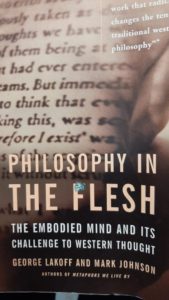 What are human beings like? How is knowledge possible? What is truth? Where do moral values come from? Questions like these have stood at the center of Western philosophy for centuries.
What are human beings like? How is knowledge possible? What is truth? Where do moral values come from? Questions like these have stood at the center of Western philosophy for centuries.
In addressing them, philosophers have made certain fundamental assumptions-that we can know our own minds by introspection.
That most of our thinking about the world is literal, and that reason is disembodied and universal-that are now called into question by well-established results of cognitive science.
The authors tease out the answers to these and other matters in this enthralling book.